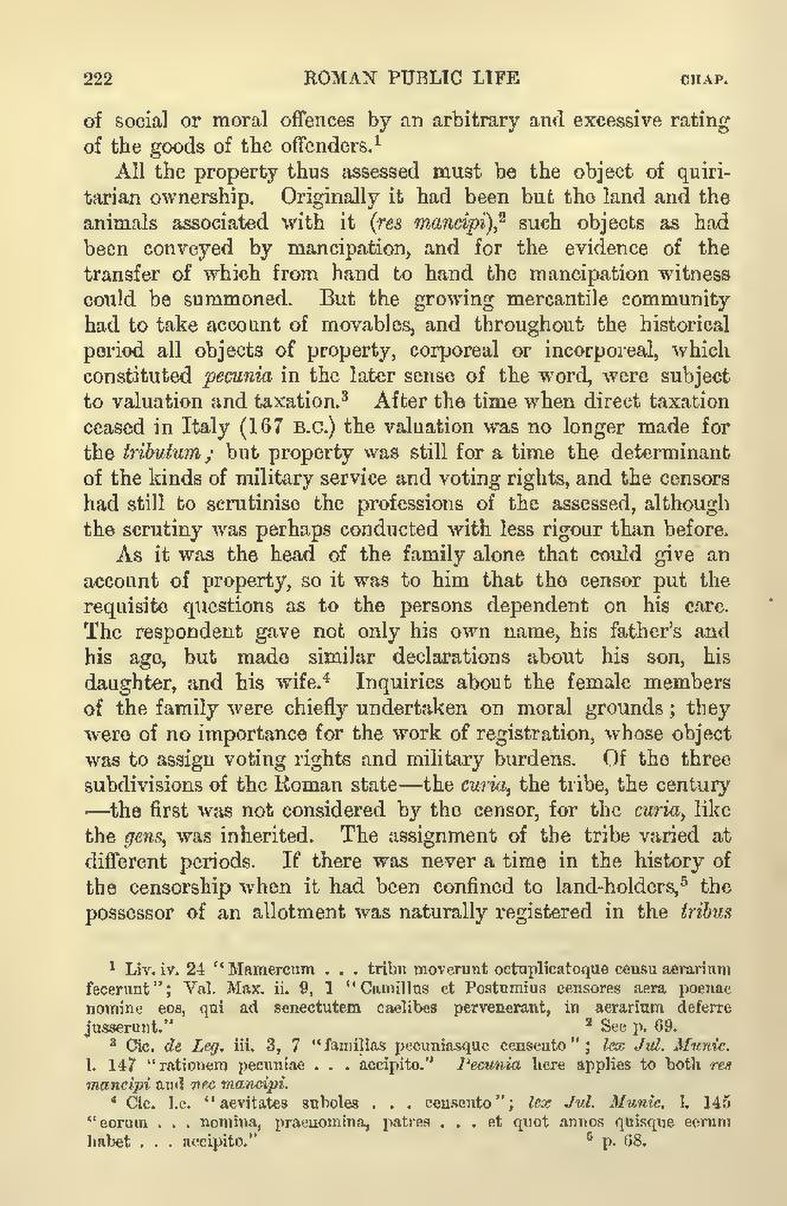of social or moral offences by an arbitrary and excessive rating of the goods of the offenders.[1]
All the property thus assessed must be the object of quiritarian ownership. Originally it had been but the land and the animals associated with it (res mancipi),[2] such objects as had been conveyed by mancipation, and for the evidence of the transfer of which from hand to hand the mancipation witness could be summoned. But the growing mercantile community had to take account of movables, and throughout the historical period all objects of property, corporeal or incorporeal, which constituted pecunia in the later sense of the word, were subject to valuation and taxation.[3] After the time when direct taxation ceased in Italy (167 B.C.) the valuation was no longer made for the tributum; but property was still for a time the determinant of the kinds of military service and voting rights, and the censors had still to scrutinise the professions of the assessed, although the scrutiny was perhaps conducted with less rigour than before. As it was the head of the family alone that could give an account of property, so it was to him that the censor put the requisite questions as to the persons dependent on his care. The respondent gave not only his own name, his father's and his age, but made similar declarations about his son, his daughter, and his wife.[4] Inquiries about the female members of the family were chiefly undertaken on moral grounds; they were of no importance for the work of registration, whose object was to assign voting rights and military burdens. Of the three subdivisions of the Roman state—the curia, the tribe, the century—the first was not considered by the censor, for the curia, like the gens, was inherited. The assignment of the tribe varied at different periods. If there was never a time in the history of the censorship when it had been confined to land-holders,[5] the possessor of an allotment was naturally registered in the tribus
- ↑ Liv. iv. 24 "Mamercum . . . tribu moverunt octuplicatoque censu aerarium fecerunt"; Val. Max. ii. 9, 1 "Camillas et Postumius censores aera poenae nomine eos, qui ad senectutem caelibes pervenerant, in aerarium deferre jusserunt."
- ↑ See p. 69.
- ↑ Cic. de Leg. iii. 3, 7 "familias pecuniasque censento"; lex Jul. Munic. l. 147 "rationem pecuniae . . . accipito." Pecunia here applies to both res mancipi and nec mancipi.
- ↑ Cic. l.c. "aevitates suboles . . . censento"; lex Jul. Munic. l. 145 "eorum . . . nomina, praenomina, patres . . . et quot annos quisque eerum habet . . . accipito."
- ↑ p. 68.
